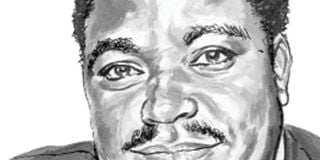Taxi driver who rose to be pioneer stock broker

What you need to know:
- Although he became one of the big names in the stock market, Mr Thuo had only two years of secondary school when he quit because his parents could not afford fees.
By the time he died in November 2006, Francis Mwangi Thuo had made a name for himself.
Although his stockbroking firm, Francis Thuo and Partners, followed him to the grave after it was suspended from trading, Mr Thuo’s remains the story of a pioneer Kenyan stockbroker who rose from a mere taxi driver to become synonymous with the Nairobi Stock Exchange — now Nairobi Securities Exchange.
As Thuo started ailing, things went awfully wrong at his firm. Some rogue employees took advantage to illegally sell clients’ stocks.
By the time the managers were smoked out, some three months after Thuo’s death, the once-prestigious firm had gobbled up millions of investors’ money and was in the red.
Although he became one of the big names in the stock market, Mr Thuo had only two years of secondary school when he quit because his parents could not afford fees.
Fate pushed him to Nairobi where he started running a taxi while doing an accounting course by correspondence from a South African college. Privately, he also pursued his secondary education which was disrupted again by the Mau Mau war.
In 1955, Mr Thuo got an internship with an accounting firm before he was employed by a stock-broker. His fascination with the stock market began here. In the meantime, he enrolled for a course from Makerere Extra-Mural Studies in Nairobi.
Pinch files
Mr Thuo’s desire to learn about the stock exchange saw him steal files from the office. “I even pinched files off the boss’ desk, read them at night, and returned them early in the morning,” he would years later admit.
Shortly after independence, Thuo plunged into stocks, becoming the first African to open a brokerage firm. “I thought my fellow Kenyans might feel freer to come to me,” he once said.
At this time there was uncertainty in the industry as capital flight and panicky investors started selling shares in a huff.
In May 1962, the matter had been raised in the Legislative Assembly and was blamed on minister for Finance, James Gichuru who had publicly stated that after independence the government would take control of banking, insurance and export.
Thuo’s prediction that indigenous Kenyans willing to buy shares would turn to him was correct. When he died, former Cabinet minister Kenneth Matiba eulogised Mr Thuo as a person who helped him understand the intricacies of the stock market.
To get investors, Thuo printed pamphlets, appeared on radio and TV and would organise government-sponsored seminars.
With the Kenyatta government favouring a smooth take-over of foreign companies by having locals buy shares, Mr Thuo was at the centre of it.
By 1966, Kenya had about 653 foreign companies registered, but only five per cent of these allowed dealings in their shares in the NSE.
While the government could not control prices, it made it a policy for any company that listed “to make it a condition that no one group, or person dominates shareholding,” according to Mwai Kibaki, then Commerce and Industry minister.
At the NSE, Mr Thuo’s firm was given a seat and joined some four other brokerage firms. They had no common floor and met for half an hour each day to review the 30 active stocks at The Stanley’s Exchange Bar.
It was here that the Stock market had been born in 1950s when the NSE was registered under the Societies Act in 1954.
By this time, it had only 45 Ordinary shares, 26 Preferential shares, and 12 municipal and government stocks. Two years down the road, 56 companies had listed.
It was not until 1969 that Mr Thuo was to become the NSE’s first indigenous chairman when he took over from Roger Chapman.
After he was elected chairman, would normally sit at head of table spotting a slick backed hairstyle popularised in 1950s by film icon, Clark Gable. It was his style for many years.
Had the sharks not taken advantage of his illness, his company Francis Thuo and Partners would be one of the largest indigenous stockbroking company today.
He had secured an office at the top floor of the International House near Hilton Hotel. From his office window, he would look down at the Hilton’s swimming pool and his first task was to try and demystify the NSE as a club of rich select people.
The 1967 Trade Licensing Act had made it hard for foreign investors to put faith in the country and by the time Thuo took over a lot of damage had been done.
He continued to face many challenges including the introduction in 1975 of Capital Gains Tax. While the number of listed companies grew to 67, the 1977 coffee boom weighed down the market which was followed by the collapse of the East African Community.
In all these, Mr Thuo would advise big investors to spread out their investments through a number of stocks and little investors to put their money in big companies.
By insisting on this, Mr Thuo helped many who dared ask him on where to invest and on which stock. Today, that would be akin to insider trading, an offence.
In 1983, Thuo was elected the MP for Kigumo and served for two terms. Inside Parliament, he tried to sensitise members on stocks.
Had the sharks not taken advantage of his illness, his company Francis Thuo and Partners would be one of the largest indigenous stockbroking company today.



